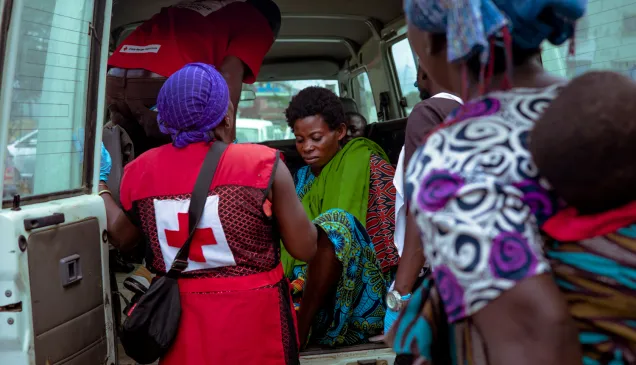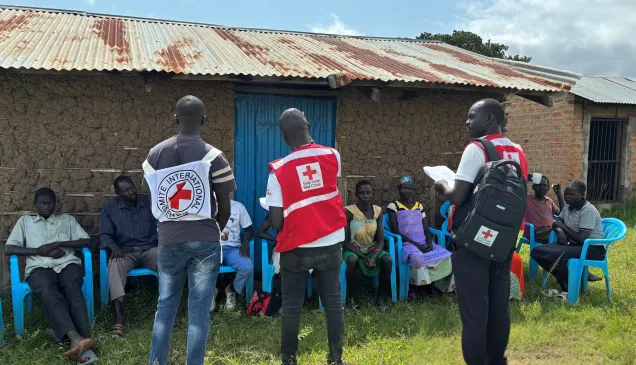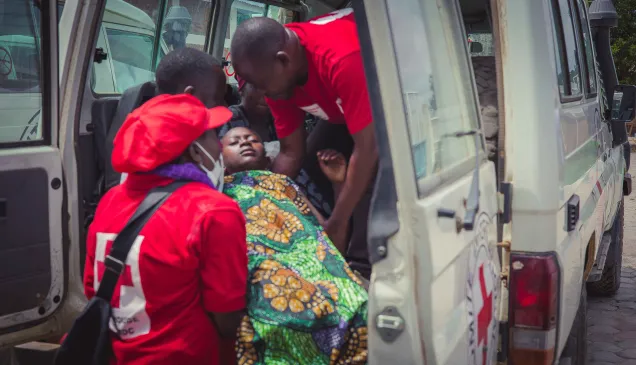In Africa, investors and aid intersect to fund sustainable humanitarian assistance
Opinion: Peter Maurer, ICRC President
Fighting in Nigeria and the Democratic Republic of Congo. Violence in the Horn of Africa and the Sahel.
The major conflicts in Africa have lasted years, if not decades, killing hundreds of thousands and sending millions fleeing from their homes in search of safety. A multitude of factors such as climate shocks, a proliferation of weapons, endemic poverty are exacerbating conflict on the continent and, I fear, will only get worse.
The needs are huge, but where are the funds to help those affected by warfare? According to U.N. data, $26 billion is needed for humanitarian assistance globally in 2019, but only 27 percent of it had been funded as of July. At the ICRC we are acutely aware that collectively we need to find new ways to address the growing shortfall.
One thing is obvious: traditional and isolated responses are no longer sufficient to keep up the scale and complexity of today's humanitarian crises. Traditional funding paths remain important, but we also must find game-changing financial models to develop systems for service delivery.
In late August I will be in Japan to attend the 7th Tokyo International Conference for African Development alongside African leaders, international organizations, civil societies, NGOs, and the private sector. There will be discussions and debate about developing sustainable and resilient societies, climate change, disaster mitigation, and engagement with the private sector.
Amid this debate, I hope to draw attention to the tens of thousands of people suffering in protracted conflicts in the Sahel, in the Lake Chad region, and the Horn of Africa.
The people like Jacqueline, a mother of three, who during a violent attack in the Democratic Republic of Congo, was shot in the leg and had to have it amputated. Today in part thanks to ICRC's assistance, Jaqueline uses a prosthetic leg and, after training as a seamstress and buying a sewing machine, she has started to earn a living again to support her family and send her children to school.
Helping Jacqueline recover from violence is a life-saver not only for her, but for her family. I firmly believe that we must foster people's skills and capacities to build self-sustaining livelihoods and create their own future. The ICRC is ramping up its micro-economic projects – where a small amount of start-up assistance is the spark needed for people to create a small enterprise and not only become financially self-sufficient, but also rebuild their autonomy, rather than relying on aid handouts.
We need bigger responses, too. We humanitarians must address systemic issues and build sustainable and resilient societies while also providing the necessary short-term relief.
This kind of dual-track approach requires long-term budgeting as opposed to traditional short-term humanitarian emergency funding. At TICAD we will be discussing with African leaders and the private sector how to develop models which can fund these activities and address basic humanitarian issues.
Since 2017, the ICRC has been on an ambitious journey to find new and innovative ways of partnering with non-traditional actors such as corporations, international financial institutions and foundations to develop projects traditionally outside of the realm of existing humanitarian funding models.
The ICRC launched the first ever Humanitarian Impact Bond where we brought together businesses to invest in our physical rehabilitation projects in Nigeria, Mali and Democratic Republic of Congo. Governments served as outcome funders to pay back the businesses who had invested in the project upon successful completion in five years. Two years into the project, construction is underway and I can confidently say we are progressing well.
In Nigeria, we have joined hands with the Tony Elumelu Foundation to support and empower the Nigerian entrepreneurs from the northeast and the Niger Delta to have access to the Foundation's programmes for mentoring, networks and other support platforms. In Goma, DRC, we are looking into investment models to support water infrastructure for a population of 350,000 to ensure sustainable service delivery over the long-term.
The role played by humanitarian investors and philanthropists is important, but States must also set frameworks that unlock private capital for humanitarian projects. For the Humanitarian Impact Bond, a few governments provided the required (and critical) guarantees for the private investors.
The ICRC is also working with the World Bank and a group of other international organizations and companies on early warning system to prevent famine: the Famine Early Action Mechanism. This project involves developing a financial mechanism that quantifies the risk of famine in monetary terms and establishes a structure to provide organizations with the financial resources necessary to respond when certain thresholds are reached.
It is significant that the most competent and experienced organizations and companies recognise the potential of this project and are willing to take a chance. Ultimately, its success will depend not only on our technical capabilities but also on the political will of State institutions to invest in preventive financing models, instead of only absorbing the costs of humanitarian crises once they occur.
In Africa the humanitarian-development continuum is as relevant as anywhere because of the many protracted conflict situations. Thankfully there is a growing interest from investors and corporate partners to find and support shared solutions on the continent.
The Japanese government's decision to invest in Africa by hosting TICAD fills me with hope. The continent hosts seven of the world's fastest growing economies, where people are rapidly embracing technology, change and innovation. The time is ripe for Africa to help align the stars between humanitarians and business leaders to create greater and wider humanitarian impact.



